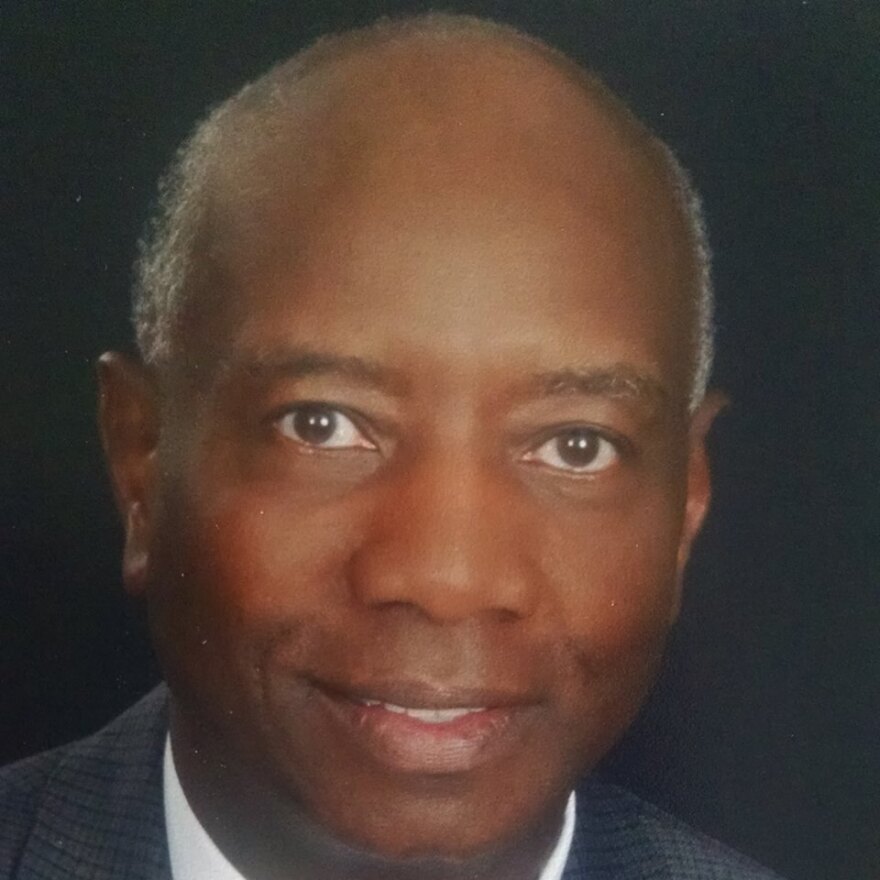April 4, 1968: The date resonates in the hearts of many Americans, including Wichitans.
It was on that day 50 years ago that civil rights leader Martin Luther King, Jr. was fatally shot on the balcony of the Lorraine Hotel in Memphis, Tennessee. Dr. King had delivered the “I’ve Been To The Mountaintop” speech in support of the striking sanitation workers at Mason Temple in Memphis on April 3, the day before he was assassinated. He was 39.
Below, listen to an MLK remembrance, first aired five years ago, where several Wichitans reflect on the day when they heard the news of King’s assassination.
Galyn Vesey

People were just stunned, literally shocked. I think that we were all in some way aware that this could happen, but you pray and hope that it never would happen.
But it was just like, step by step, his life became more complex and the environment around him intensified in terms of the hate groups and yet his will and determination [was] to push on.
Jackie Williams

It was shocking, to say the least. Even with everything else that was going on, all the things that were happening, you were in disbelief. I had to ask again, "What did you say?” to the person who told me. [I said,] "Are you sure?" It was still hard to accept that someone like Martin Luther King, Jr. would be assassinated. We went home and watched it on the news and all the reports, and I clearly remember Robert Kennedy giving his talk and it seemed to be extemporaneous and heartfelt, and he referenced the assassination of his brother [President John. F. Kennedy]. It was just a very sad time.
Rex Cornelius
I was at the University of Texas in Austin. I remember a huge and jittery rally of students on the central mall, where we were addressed by our brilliant Dean of Arts and Sciences, John Silber. He was perhaps the only figure in the university administration that had credibility. I remember him keeping us calm, through the shout of "Stokely [Carmichael] has called for revolution."
That day, and all of 1968, had a very complicated impact on the way I see my culture and my country.
Gerald Norwood

Seeing the rioting and those sort of things going on at the time and really the hurting of individuals — both white and black — and the rage, it put you in a helpless situation. And also the loss that I was experiencing as this was going on was interesting, because we really admired Dr. King and saw him at our early ages being the person that was going to be hopeful to us and be a guidance to both black and white in American situations. There was a lot going on at that time. We had friends, older friends, that had gone to Vietnam and that was an issue ... that affected blacks, and so many of our young men had to go to war and we were losing them and I knew some of those people.
So all of that rage was in lots of kids at that time and so it was very understandable how they could transfer that when something else against them seemingly was happening. You felt very helpless because there wasn’t nothing that anybody could do to alleviate the pain.
Jean Elliott

I think I was actually cleaning up the house and it came on the TV and yeah, I remember it, I remember the sense of, “Oh no, not again, all the good die young.” ... Later they came out with that song, "Abraham, Martin and John," and I always thought that song really reflected what I felt that day.
Rev. Paul Gray

Martin Luther King and I were together at Morehouse College in Atlanta, Georgia. We graduated in the same class in 1949. When I heard [the news] I was living in Kansas City, Missouri, and it of course hurt my heart and then I just wondered how it affected the President of Morehouse, Dr. Mays, and others there.
We just thought that it was tragic until we remembered that he was a minister, he was a Christian, and therefore even though that had happened, we believe that to be absent from the body is to be present with the Lord, and that he had lived a sacrificial life, a nonviolent life, a life that did all that he could to be of help to others, and that he will have eternal reward from that. So that sort of comforted us.
(Note: Rev. Gray passed away in 2009)
Marvin Stone

I’ve since learned that he got out of a sick bed to come make the speech ... When he said, "I may not get there with you but I will be there," it just seemed kind of ominous now after you look at the replay, the tapes and everything and you listen to his voice. I have never felt a sense of loss and the sense of questioning as to how we could allow that kind of thing to happen to someone, that that kind of deep-seeded hate could even be allowed to fester.



